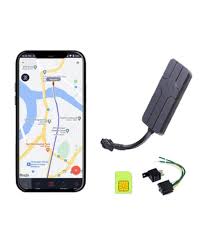An
automobile tracking device is a technology used to monitor and track the location and movement of vehicles in real-time. These devices are often equipped with GPS (Global Positioning System) technology, and they can offer a variety of features depending on the system's complexity. Here are some of the main aspects and functions of an automobile tracking device:
Key Features:
Real-time GPS Tracking:
- Tracks the exact location of the vehicle, typically viewable through a mobile app or online platform.
Geofencing:
- Allows the creation of virtual boundaries, and alerts are sent if the vehicle crosses those boundaries.
Vehicle Speed Monitoring:
- Tracks the speed of the vehicle and can alert if the vehicle exceeds preset limits.
Route History:
- Logs the vehicle’s routes over a period of time, which can be useful for fleet management or personal tracking.
Maintenance Alerts:
- Sends reminders or alerts for maintenance tasks like oil changes, tire pressure checks, or other vehicle health assessments.
Driving Behavior Monitoring:
- Tracks driving habits, including harsh braking, rapid acceleration, or sharp turns, which can be used to assess driver behavior.
Remote Vehicle Shutdown (optional feature):
- Allows the owner or fleet manager to remotely disable the vehicle in case of theft or unauthorized use.
SOS Alerts:
- Sends emergency alerts to designated contacts if the vehicle is involved in an accident or if the driver triggers the SOS feature.
Battery Monitoring (in some devices):
- Monitors the health of the vehicle's battery and can provide alerts if the voltage drops below a certain level.
Types of Tracking Devices:
Plug-and-play devices: These are easy-to-install devices that plug into the OBD-II (On-Board Diagnostics) port in a vehicle. They are commonly used for personal tracking and monitoring.
Hardwired devices: These are professionally installed devices that are directly connected to the vehicle's power supply. They offer more advanced features and are often used in fleet management.
Bluetooth-enabled devices: These typically connect via Bluetooth to a smartphone for tracking within a limited range and are often used for personal or family vehicles.
Uses of Automobile Tracking Devices:
Vehicle Security:
- Helps prevent theft by tracking the vehicle’s location in real-time.
Fleet Management:
- Companies use tracking devices to manage their fleet of vehicles, ensuring efficiency and security while monitoring driver behavior.
Personal Tracking:
- Car owners can monitor their vehicles for peace of mind, especially if they have young drivers or vehicles in high-theft areas.
Insurance Benefits:
- Some insurance companies offer discounts to drivers who install tracking devices, as it can help recover stolen vehicles and improve driving safety.
Navigation Assistance:
- Many tracking devices offer route optimization, which is beneficial for delivery services or long-distance driving.
Benefits:
- Peace of Mind: Always knowing the location of your vehicle can provide peace of mind, especially for valuable or frequently used vehicles.
- Theft Recovery: If a car is stolen, having a tracking device makes recovery easier by providing accurate location data to authorities.
- Improved Safety: Monitoring driving habits can promote safer driving and help in case of emergencies.
- Cost Savings: For businesses, optimizing routes and managing fuel consumption can lead to cost savings.
Overall, an automobile tracking device is a practical and valuable tool for enhancing vehicle security, improving management, and ensuring the safety of drivers and vehicles. Read more.. Fleet management


Comments
Post a Comment